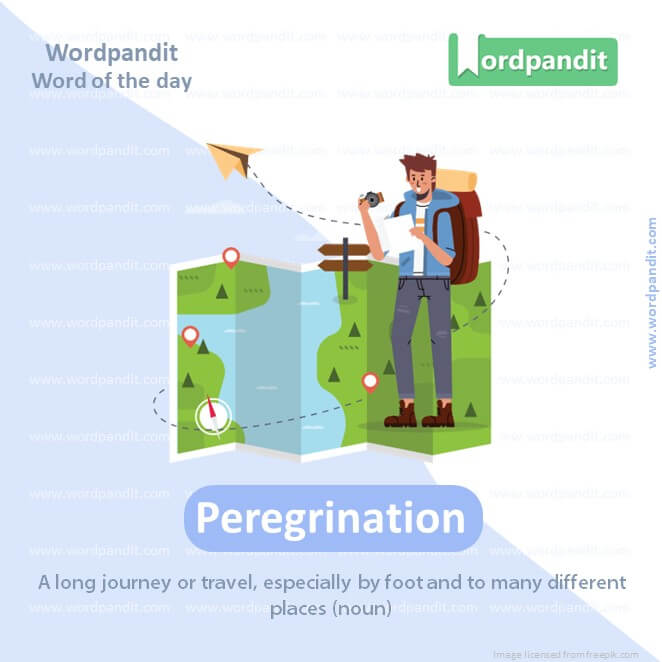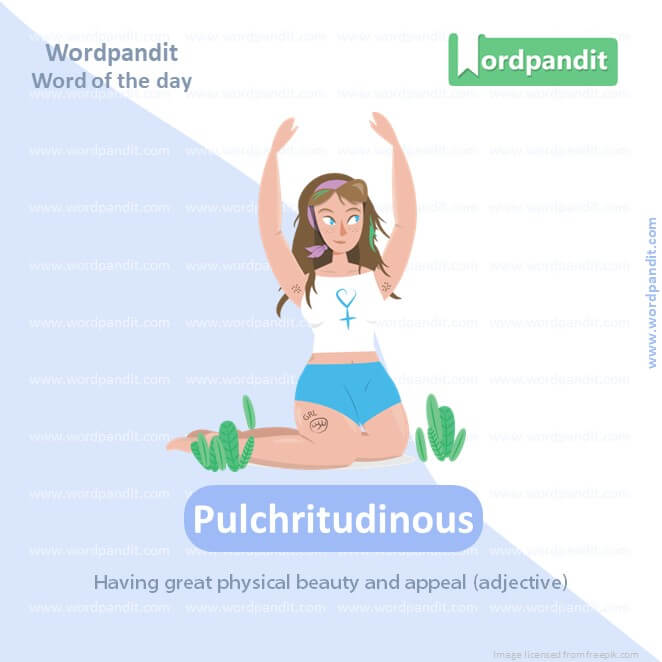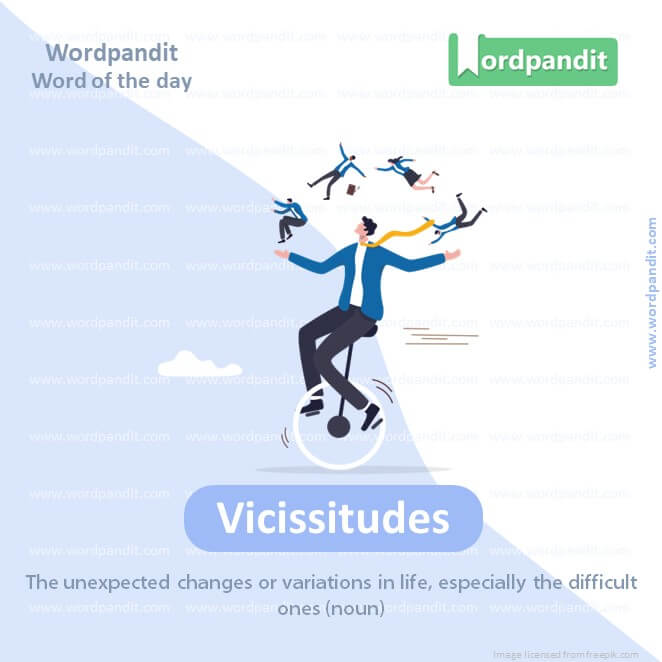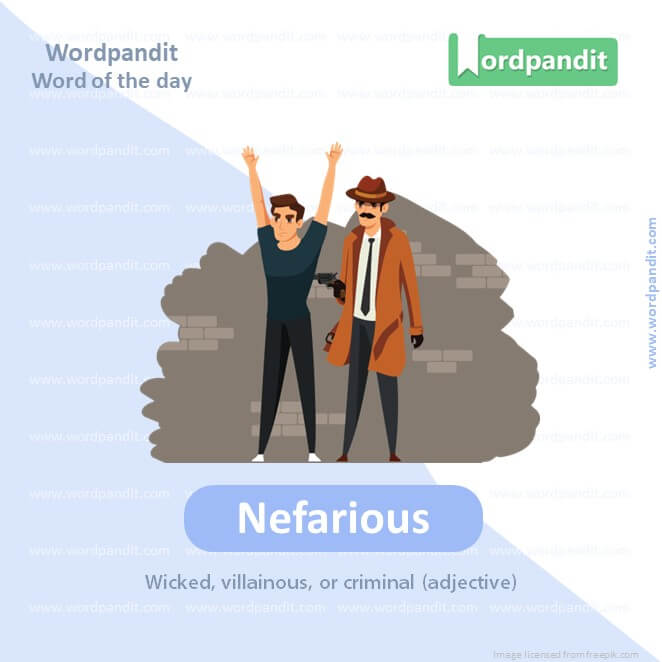Daily Vocabulary Words: List of Daily Used Words in Leading International Newspapers
Hi there. Welcome to this special section @ Wordpandit.
Our endeavour here is very simple: to highlight important daily vocabulary words, which you would come across in leading newspapers in the country. We have included the following newspapers in our selection:
• The New York Times
• The Washington Post
• Scientific American
• BBC
• The Guardian
• Psychology Today
• Wall Street Journal
• The Economist
We are putting in extensive work for developing your vocabulary. All you have got to do is be regular with this section and check out this post on a daily basis. This is your repository of words that are commonly used and essentially, we are posting a list of daily used words. Hence, this has significant practical application as it teaches you words that are used commonly in leading publications mentioned above.
Visit the website daily to learn words from leading international newspapers.

WORD-1: Peregrination
CONTEXT: Peregrination across war-torn regions earned him the reputation of a fearless journalist.
SOURCE: New York Times
EXPLANATORY PARAGRAPH: Imagine going on a long adventure, traveling to many different places, and exploring new things. That long and exciting journey you take is called “peregrination.”
MEANING: A long journey or travel, especially by foot and to many different places. (noun)
PRONUNCIATION: Pairehgrihnayshun
SYNONYMS: Journey, Voyage, Expedition, Trek, Wanderings, Tour, Pilgrimage
USAGE EXAMPLES:
1. Her peregrination across the continent lasted two years.
2. He documented his peregrination in a series of articles.
3. The monk’s peregrination to sacred sites was inspirational.
4. Their peregrination was filled with unexpected discoveries.

WORD-2: Pulchritudinous
CONTEXT: Art critic extolled the pulchritudinous nature of the newly discovered portrait.
SOURCE: Al Jazeera
EXPLANATORY PARAGRAPH: Think of the most beautiful thing you’ve ever seen, maybe a rainbow or a pretty flower. “Pulchritudinous” is a fancy word that means something is very, very beautiful!
MEANING: Having great physical beauty and appeal. (adjective)
PRONUNCIATION: Pulkrihtoodinus
SYNONYMS: Beautiful, Gorgeous, Stunning, Attractive, Lovely, Ravishing, Handsome
USAGE EXAMPLES:
1. The pulchritudinous sunset took everyone’s breath away.
2. The artist captured the pulchritudinous nature of the landscape.
3. Many were mesmerized by her pulchritudinous appearance.
4. The room was adorned with pulchritudinous ornaments.

WORD-3: Vicissitudes
CONTEXT: Documentary showcased the vicissitudes of life in the Sahel region, oscillating between drought and flood.
SOURCE: Al Jazeera
EXPLANATORY PARAGRAPH: Imagine riding a roller coaster that goes up and down, up and down. Life can be like that too, with happy moments and sad moments. These ups and downs in life are called “vicissitudes.”
MEANING: The unexpected changes or variations in life, especially the difficult ones. (noun)
PRONUNCIATION: Vihsissihtudes
SYNONYMS: Changes, Fluctuations, Variations, Ups and downs, Alterations, Shifts, Swings
USAGE EXAMPLES:
1. The vicissitudes of life taught her to be strong.
2. Every business faces its own vicissitudes.
3. The autobiography covers the many vicissitudes of his life.
4. We all must adapt to the vicissitudes of fate.

WORD-4: Nefarious
CONTEXT: The Washington Post exposed the nefarious activities of the smuggling ring at the border.
SOURCE: New York Times
EXPLANATORY PARAGRAPH: Think about a cartoon where there’s a villain who does bad things. If something is very wicked or evil, we can call it “nefarious.”
MEANING: Wicked, villainous, or criminal. (adjective)
PRONUNCIATION: Nehfaireeus
SYNONYMS: Evil, Wicked, Sinister, Corrupt, Malicious, Vile, Villainous
USAGE EXAMPLES:
1. The hero stood up against the nefarious plans of the villain.
2. They uncovered a nefarious scheme to rob the bank.
3. She had a reputation for nefarious activities.
4. The detective was on the trail of a nefarious character.

WORD-5: Desuetude
CONTEXT: Highlight the desuetude of ancient architectural wonders in the Middle East, urging for restoration efforts.
SOURCE: Washington Post
EXPLANATORY PARAGRAPH: You know how sometimes you have a toy you used to play with a lot, but now you’ve forgotten about it, and it’s just sitting in a corner? “Desuetude” means something that was once used a lot but isn’t anymore, kind of like that forgotten toy.
MEANING: A state of disuse or inactivity. (noun)
PRONUNCIATION: Desootude
SYNONYMS: Disuse, Neglect, Abandonment, Obsolescence, Disrepair, Decay, Decline
USAGE EXAMPLES:
1. The old factory fell into desuetude after the company shut down.
2. With the rise of smartphones, many old gadgets went into desuetude.
3. The tradition has faded into desuetude over the years.
4. The old bridge was in desuetude and unsafe for use.
WORD-6: Brobdignagian
CONTEXT: The Brobdignagian statue unveiled in the heart of the city, symbolizing unity and strength.
SOURCE: Al Jazeera
EXPLANATORY PARAGRAPH: Imagine a cookie that’s as big as your house. Super big, right? When something is giant or huge, we can use a fun word like “Brobdignagian” to describe it.
MEANING: Extremely large; gigantic. (adjective)
PRONUNCIATION: Brobdignageean
SYNONYMS: Enormous, Gigantic, Huge, Mammoth, Colossal, Immense, Titanic
USAGE EXAMPLES:
1. The concert had a Brobdignagian stage setup.
2. He was amazed by the Brobdignagian size of the statue.
3. The project was a Brobdignagian undertaking.
4. We were served a Brobdignagian meal at the feast.
WORD-7: Anathema
CONTEXT: The topic that remains anathema in certain conservative societies, urging for open dialogue.
SOURCE: Al Jazeera
EXPLANATORY PARAGRAPH: Imagine if there’s something you really, really don’t like. It could be broccoli or doing chores. “Anathema” is a word that means something you really dislike or hate.
MEANING: Something that someone dislikes strongly; a strong curse. (noun)
PRONUNCIATION: Uhnathuhma
SYNONYMS: Curse, Abomination, Horror, Detestation, Bane, Abhorrence, Antipathy
USAGE EXAMPLES:
1. For a health enthusiast, junk food might be anathema.
2. Betrayal is anathema to their close-knit group.
3. He considered laziness to be an anathema.
4. To many environmentalists, pollution is an anathema.
WORD-8: Penumbra
CONTEXT: The solar eclipse beautifully described the play of penumbra and umbra across the Earth’s surface.
SOURCE: New York Times
EXPLANATORY PARAGRAPH: Imagine you’re outside on a sunny day and standing just under a tree. You’re not in full shade and not in full sunlight, but somewhere in between where it’s a bit shadowy. That shadowy area is called “penumbra.”
MEANING: The partially shaded outer region of a shadow cast by an object, especially by the moon during an eclipse. (noun)
PRONUNCIATION: Pehnumbra
SYNONYMS: Shadow, Shade, Half-shadow, Umbra, Shadiness, Eclipse shadow, Twilight
USAGE EXAMPLES:
1. The penumbra of the eclipse was visible from our location.
2. The artist skillfully painted the penumbra of the scene.
3. The leaves created a delicate penumbra on the ground.
4. The lamp cast a soft penumbra around the room.
WORD-9: Demeanor
CONTEXT: Jordan’s shirt sleeves demeanor and wrestler’s pugnacity, substitute a bespectacled, low-key presentation
SOURCE: Al Jazeera
EXPLANATORY PARAGRAPH: Think about the way you act when you’re at school, with your friends, or when you’re mad or happy. “Demeanor” is a word that talks about how someone behaves or carries themselves.
MEANING: The way in which a person behaves or presents themselves, especially in relation to others. (noun)
PRONUNCIATION: Dehmeenor
SYNONYMS: Behavior, Conduct, Manner, Attitude, Appearance, Bearing, Composure
USAGE EXAMPLES:
1. Her calm demeanor helped calm the situation.
2. Despite the pressure, his demeanor was always polite.
3. The teacher’s friendly demeanor made the students feel welcome.
4. His serious demeanor made it hard to tell when he was joking.
WORD-10: Cognizable
CONTEXT: Texas has not demonstrated a judicially cognizable interest in the manner in which another State conducts its elections.
SOURCE: Washington Post
EXPLANATORY PARAGRAPH: Imagine if someone tells you a story and you can understand and recognize what they’re talking about. “Cognizable” means something that can be easily known, understood, or recognized.
MEANING: Capable of being recognized or known; understandable. (adjective)
PRONUNCIATION: Cognizable
SYNONYMS: Recognizable, Perceivable, Discernible, Identifiable, Noticeable, Detectable, Observable
USAGE EXAMPLES:
1. The difference between the two products was easily cognizable.
2. The artist’s style is immediately cognizable in his paintings.
3. The landmarks are cognizable from a great distance.
4. She spoke in clear, cognizable terms during the presentation.
Vocabulary Synonyms
In the intricate weave of language learning, ‘vocabulary synonyms’ emerge as a key element that adds depth and variety to expression. These different words with similar meanings enrich our vocabulary, enabling us to communicate with precision and clarity. However, grasping ‘vocabulary synonyms’ successfully warrants a systematic approach.
When approaching ‘vocabulary synonyms’, context is your compass. Engage with various reading materials like novels, newspapers, and digital content to explore and understand how these synonyms are used in different situations. This exposure will fortify your comprehension of ‘vocabulary synonyms’ and their usage nuances.
Employing memory-enhancing techniques can cement your grasp on ‘vocabulary synonyms’. Employing flashcards is an effective method where one side contains the word you know, and the other side has its synonyms. Also, creating mind maps, linking the known word to its various synonyms, can be an engaging way to learn ‘vocabulary synonyms’.
To master ‘vocabulary synonyms’, take an active role in application. Regular conversations, written communications, digital interactions – all of these offer ample opportunities to utilize learnt synonyms. This practice refines your application and accelerates internalization of ‘vocabulary synonyms’.
Embracing language exchange platforms or engaging with native speakers can provide invaluable feedback on the usage of ‘vocabulary synonyms’. This interaction can further enhance your understanding of the cultural idiosyncrasies of word usage.
In conclusion, learning ‘vocabulary synonyms’ is a rewarding pursuit that adds layers of complexity to your language skills. A thoughtful blend of diversified resources, memory tools, practice, and interactive learning can make the task of mastering ‘vocabulary synonyms’ an enjoyable and fruitful journey. Every synonym learnt paints your vocabulary with different shades of understanding, making your language canvas all the more vivid and spectacular!











